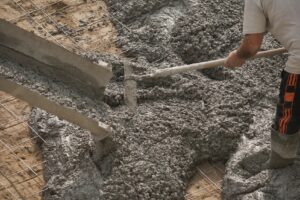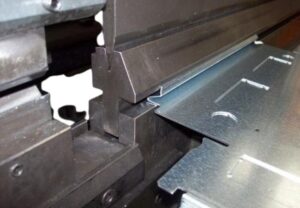Home » Posts tagged 'Quality Control and Testing'
Tag Archives: Quality Control and Testing
How to Choose the Perfect Ready Mix Concrete Company: A Comprehensive Guide

When it comes to construction projects, whether big or small, the quality of your concrete can make or break the entire endeavor. Ready mix concrete has become the go-to choice for many builders and contractors due to its convenience and consistency. However, choosing the right ready mix concrete company is crucial to ensure your project’s success. With so many options available, it can be overwhelming to make the right choice. In this comprehensive guide, we’ll walk you through the essential factors to consider when selecting a ready mix concrete company, so you can make an informed decision and achieve the best results for your project.
Define Your Project Requirements
Before you even begin searching for a ready mix concrete company, it’s essential to have a clear understanding of your project’s requirements. Ask yourself the following questions:
- What is the size and scope of the project?
- What is the required strength and durability of the concrete?
- Are there any specific additives or admixtures needed?
- What is the project’s budget and timeline?
Having a precise idea of your project’s needs will help you communicate effectively with potential suppliers and ensure that the concrete company you choose can meet your specifications.
Research and Shortlist Potential Companies
Once you have a clear understanding of your project requirements, it’s time to start researching potential ready mix concrete companies. Here’s how to go about it:
Ask for Recommendations: Seek recommendations from colleagues, friends, or other professionals in the construction industry. They may have worked with reliable concrete suppliers before and can provide valuable insights.
Online Research: Use the internet to search for local ready mix concrete companies. Visit their websites to gather information about their services, experience, and customer reviews.
Check Credentials: Verify that the companies are licensed and have the necessary certifications to ensure compliance with industry standards.
Contact References: Request references from the companies and reach out to their past clients. Inquire about their experiences, including the quality of concrete, punctuality, and customer service.
Assess Experience and Reputation
The experience and reputation of a ready mix concrete company are crucial factors to consider. Look for a company with a proven track record of successfully delivering high-quality concrete for various projects. Here’s how to assess their experience and reputation:
Years in Business: A company that has been in business for several years is likely to have accumulated valuable expertise.
Portfolio: Review their portfolio of completed projects to determine if they have experience in projects similar to yours.
Online Reviews: Read online reviews and testimonials from previous clients to gauge customer satisfaction and the company’s reputation.
Awards and Certifications: Check if the company has received any awards or certifications for excellence in the industry.
Quality Control and Testing
Quality control is paramount when it comes to ready mix concrete. Ensure that the company has stringent quality control measures in place. This includes regular testing of raw materials, in-process testing, and final product testing. Ask the following questions:
- Do they have a quality control department?
- What testing procedures do they follow for their concrete?
- Are they willing to provide test reports for the concrete they supply?
Range of Mixes and Admixtures
Different projects may require specific concrete mixes and admixtures to meet the desired strength, durability, and workability. A good ready mix concrete company should offer a variety of mix designs and be willing to customize mixes to your project’s requirements. Inquire about the range of mixes and admixtures they can provide and whether they have experience with specialized concrete types, such as self-compacting concrete or high-strength concrete.
Delivery and Scheduling
Efficient and timely delivery of concrete is critical to keeping your project on track. Consider the following aspects related to delivery and scheduling:
- Do they have a reliable fleet of concrete trucks?
- What is their delivery radius, and can they reach your project site?
- Are they flexible with scheduling to accommodate your project timeline?
- Do they offer options for off-hours or weekend deliveries if necessary?
Environmental Considerations
As sustainability becomes increasingly important, you may want to choose a ready mix concrete company that is environmentally conscious. Inquire about their environmental practices, such as recycling of materials and reducing carbon emissions during production and transportation. Some companies may offer eco-friendly concrete options with lower carbon footprints.
Customer Service and Communication
Effective communication with your concrete supplier is essential for a smooth construction process. Pay attention to their responsiveness and willingness to address your concerns and questions promptly. A company that values good customer service is more likely to prioritize your project’s success.
Cost and Payment Terms
While cost should not be the sole determining factor, it is undoubtedly an important consideration. Request quotes from multiple ready mix concrete companies and compare them. Be cautious of companies that significantly underbid competitors, as this may indicate subpar quality or hidden fees. Additionally, clarify the payment terms and ensure they align with your project’s financial plan.
Insurance and Liability Coverage
Verify that the ready mix concrete company has adequate insurance coverage. This includes liability insurance to protect you in case of accidents or property damage during the concrete delivery and pouring process.
Visit the Plant
If possible, schedule a visit to the company’s concrete batching plant. This allows you to observe their equipment, facilities, and quality control procedures firsthand. It can also provide insights into their commitment to safety and efficiency.
Contract and Terms
Before finalizing your choice, carefully review the contract provided by the ready mix concrete company. Ensure that all project specifications, delivery schedules, pricing, and terms are clearly outlined. If you have any questions or concerns, discuss them with the company before signing the contract.
Conclusion
Choosing the right ready mix concrete company is a crucial decision that can significantly impact the success of your construction project. By following the steps outlined in this comprehensive guide, you can make an informed choice that aligns with your project’s specific requirements, quality standards, and budget. Remember that the selection process should not be rushed; take the time to research, compare, and communicate with potential suppliers. With the right ready mix concrete company by your side, you can build with confidence, knowing that your project is in capable hands.
